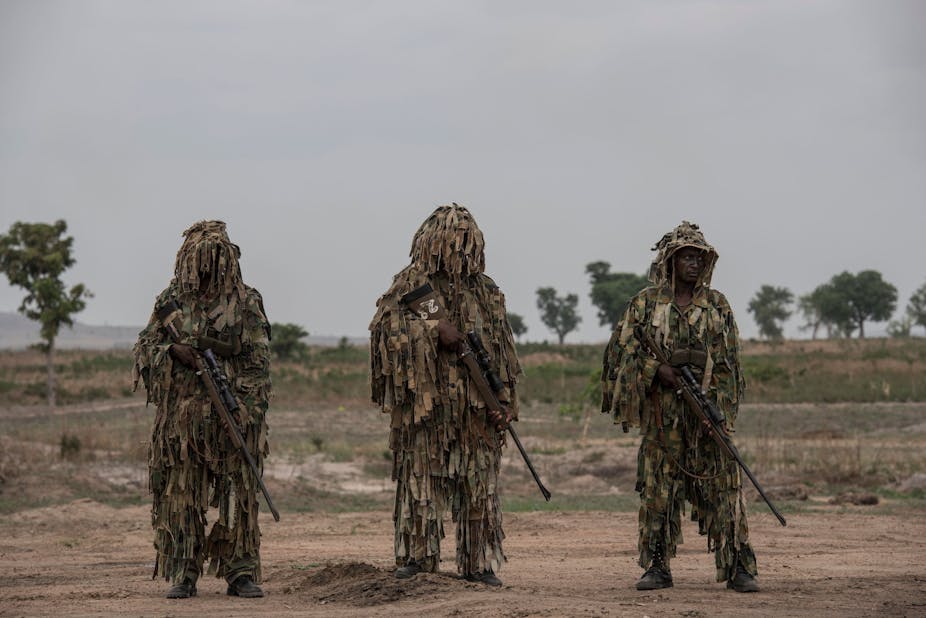
2022 has been an eventful year in Nigeria. For one thing, it’s been the precursor to the country’s general elections, which are due to be held in the first quarter of 2023. That’s a massive endeavour on its own. What is more, electoral campaigns and related activities are happening against the backdrop of spiralling insecurity.
There have been some especially horrifying events in 2022. On 28 March, terrorists ambushed and attacked a passenger train en route from Abuja to Kaduna. They killed some passengers and abducted scores more.
After almost six months of negotiations, and unconfirmed claims of payment of ransom, the last batch of 23 captives from the train was released in October.
On 5 June, more than 30 people were murdered in another terrorist attack, this one on a church in Owo in Ondo State.
No part of the country is exempt. And, given that the run-up to Nigeria’s elections tends to be marked by violence, the situation may worsen.
One of the biggest takeaways when considering Nigeria’s year in review is the same as it has been for the past few years: significant reform is needed if Africa’s largest democracy is to become safer for all who live in it.
Every region is affected
Every region is affected. But the nature of the violence and insecurity differs somewhat from place to place within Nigeria. Previously, Boko Haram was the country’s biggest security headache. Its destabilising insurgency, which started in Borno State, was concentrated in the country’s north-east region.
Now a number of other non-state armed groups are spreading the violence all over Nigeria.
The south-eastern region of the country has been engulfed by separatist violence and criminal opportunism crippling businesses in major trading centres like Onitsha, Anambra State. Take the activities of the “unknown gunmen”, criminals who often disguise as Biafra separatists to perpetrate gang violence, especially kidnapping for ransom and armed robbery.
Meanwhile, the north-western part of Nigeria, which includes President Muhammadu Buhari’s home state of Katsina, has been enmeshed in crime and terror: kidnappings, mass abductions, enforced disappearances, cattle rustling and localised raids. Communities in the region have been displaced and some are essentially held captive in their own homes by bandits and Islamist insurgents.
The north-central region, meanwhile, is still grappling with the farmer-herder crisis, which became rife from around 1999. The crisis is often complicated by a mix of herder militancy and jihadi-style banditry, especially in parts of Niger State.
The south-west, including places like Lagos, has witnessed an upsurge of gang, cult and ritual violence. This is in addition to the piracy and oil theft prevailing in the Niger Delta area.
At least 7,222 Nigerians were killed and 3,823 abducted as a result of 2,840 violent incidents between January and July 2022.
Overcoming the challenges?
Nigeria’s government, at various levels, appears ill-positioned to confront the situation. The response of its various security agencies has been largely poor, ineffective and reactive.
Having studied contemporary security trends in Nigeria, I have several suggestions for how the government might proactively tackle the crisis.
First, Nigeria’s national security system has been unduly centralist and militarist. Its command and control approach needs to be devolved through state and community policing.
Local participation in security should be encouraged. Neighbourhood, corporate and community vigilantes, supported and supervised by relevant government agencies, are an idea worth considering.
People should learn to take personal responsibility for securing their lives, households, assets and communities. Individuals, families and corporate bodies should incorporate safety and security into their plans. Employing trained and certified private guards is a step in the right direction.
Secondly, internal security operations are too often reactive. Troops are usually mobilised to react to specific incidents in a sort of a “fire brigade” manner. This has to give way to a preemptive and proactive approach, driven by intelligence and capable of preventing threats.
Security priorities and concerns must be entrenched in the institutionalised processes and procedures of governance and development.
Lastly, there has been an inclination towards politicising issues of national security in Nigeria. Farmer-herder conflicts in many parts of the country, for instance, have been grossly misconceived in either religious or ethnic terms.
That makes it difficult to properly understand and defuse the situation. Depoliticising matters of national security is an imperative in the country’s quest for peace and coexistence.
As the country exits 2022 and its security challenges, my hope is that the coming year will witness a marked departure in terms of the state and fate of national security in Nigeria.![]()
Al Chukwuma Okoli, SeniorLecturer, Security Sector Consultant-researcher, Department of Political Science, Federal University of Lafia, Nigeria, Federal University Lafia
This article is republished from The Conversation under a Creative Commons license.

